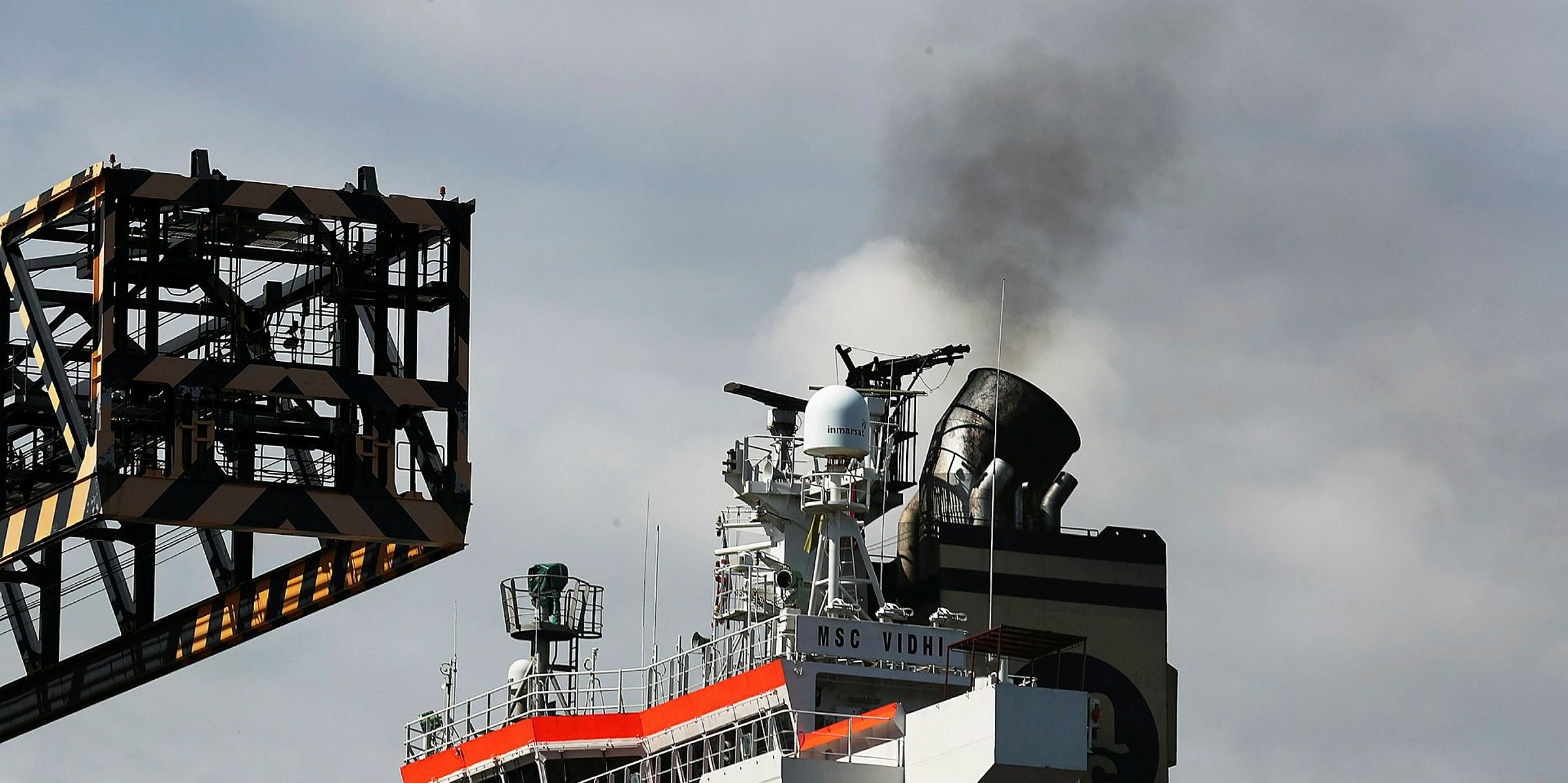Marine fuel’s carbon footprint is set to emerge as a thorny issue for shipowners, despite drawing little attention during the global debate over decarbonisation regulations.
Studies have found that several candidates of future fuel, when not produced via renewable means, could emit more greenhouse gas in their life cycles than oil-based fuels.
In a research note, classification society DNV GL said using hydrogen from natural gas reforming instead of electrolysis would create more CO2 than burning heavy fuel oil, even though its emissions during combustion are negligible.
But the issues cannot be fully resolved by shipowners, who generally only start to examine fuel specifications at delivery points.
“Reducing emissions from well-to-wake does not only involve the maritime industry and shipowners, but the global energy industry, regulators and society,” Bruno Dabouis, Bureau Veritas’ vice president for North America, southern Europe and north Africa, said.
BunkerTrace co-founder Deanna MacDonald suggested that shipowners should try to record as much information on their fuel as possible.
Prove credentials
The suppliers of new fuels will need to prove the green credentials of their products, including lower life cycle emissions than conventional bunkers, MacDonald said.
In October 2019, her start-up company launched a blockchain-based system that can store encrypted data-related fuel characteristics and transactions from the bunker supply chain, gathered from the entry points of refineries, bunker barges and vessels.
For now, the system aims to provide an audit trail that might be referenced by regulators, insurers or other stakeholders over quality issues.
MacDonald said it can be expanded to cover emissions data in line with future regulatory changes.
“That groundwork is already being laid,” she said. “We'd like to go even further upstream and work with fuel suppliers and tag future fuels such as biofuels, ammonia and hydrogen.
“If we can tag them as far upstream as possible, we'll be able to validate ... the emissions profiles of all of these fuels from end to end.”
Jesper Rosenkrans, global sales and business development director at Total Marine Fuels Global Solutions, said blockchain can help establish the traceability of fuel products through the supply chain.
“That can be part of the solution going forward,” Rosenkrans said.
During the IMO 2020 transition, more shipowners have turned to source bunker fuel from oil majors to ensure the quality of supply. Could the same happen when new types of low-carbon fuels emerge?
“We're committed to making sure that we can vouch for the quality and the origin of our product,” Rosenkrans said. “Leading up to 2020, customers looked to oil majors as kind of a safe port.”
However, he expects the market for future marine fuels to be fragmented.
“There may be companies that choose to specialise in one or two of those products rather than trying to reach across the entire spectrum,” he said. “I don't think you will see a market that is limited to just oil majors.”








